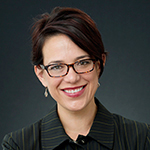 By Amy Butler
By Amy Butler
Often when people comment about living in New York City, they say something along the lines of, “That’s a dangerous place!” or, “I hope you’re being careful!”
It’s true that Gotham City is the largest city in America, with a population of over 8 million people, about 5 million more than the next largest, Los Angeles. And along with that intensity of population comes a lot of violent crime, including gun violence. Statistics show that almost 1,000 people died as a result of gun violence in New York in 2012.
So with that violent context and another mass shooting still in the headlines this week, it seemed time for the congregation at The Riverside Church to start taking concrete action to make change. It’s not the first time this congregation has acted around this issue, but it’s time to renew concrete efforts; the situation in our country is too dire.
On Sunday in worship we announced the formation of a Riverside Task Force on Gun Violence. That task force will meet to study and make recommendations, then we’ll take action individually and together as people of faith.
Because of the gritty city in which I live — where we’re confronted with gun violence every day, and because of the long history of social activism in the congregation of The Riverside Church, and because of the resources and influence available to us — it’s relatively easy for us to take this step.
And we should. Gun violence is a terrible reality in New York, and one we need to address. But with yet another mass shooting in Oregon just this past week, we are reminded that this evil is not relegated solely to our major urban centers. It is easy to think of New York City as an “unsafe place,” but the reality is, our schools, our movie theaters, our college campuses, and even our churches — all over our country — are unsafe, too.
These continuous, horrible mass shootings occurring over and over and over in America are not generally happening in big urban places where we’d be less surprised by that sort of violence. There have been 296 mass shootings in America in 2015 so far, unfolding in places like Roseburg, Ore.; Charleston, S.C.; Isla Vista, Calif.; Lafayette, La. — the list goes on and on.
In the book of Deuteronomy God speaks to Israel and says, “I have set before you life and death, blessing and curses. Choose life so that you and your descendants may live” (30:19). Every time we allow another mass shooting to leave our hearts and our nation unchanged we choose death. It is time for all of us to start choosing life.
While I’m proud of my community for taking steps to tangibly influence the culture of death in which we live in America, I think churches in other, “safer” parts of our country, have voices and influence perhaps they’ve never considered. I think it is going to take congregations who are not in big cities, congregations in, say, Brookfield, Wis., and Colorado Springs, Colo., and Tucson, Ariz., to step out in faith and courage to speak up.
It is even going to take congregations with faithful, responsible gun owners in the pews to step out and say we can find a way to respect the rights of citizens and stop the senseless violence. We must find a way.
To that end, I want to ask churches all over the country to join The Riverside Church in our efforts to act. Here’s a three-step challenge:
1. Establish a Task Force on Gun Violence in your own church. This is a small working group (4-5 people) who agree to meet for the next four to six weeks to work on a specific set of assignments.
2. Ask the task force to investigate and prepare the following:
a. Look into gun laws in your jurisdictions — county, city, state — and prepare information that educates your community about laws as they are currently where you live.
b. There are many groups actively working in advocacy and change in areas of gun violence. Audit who is doing good work to combat gun violence, starting with what is already being done in your congregation, and then looking at groups in your county, city and state and our country. Learn about these different groups, who is working in areas your congregation might find compelling, and what kind of engagement and support they need.
3. Return to your congregation with a list of tangible steps both individuals and your church as a whole can take to impact change. Build a time of commitment into a worship service, where your shared commitment to be agents of change is tied to the liturgical work of community, a reminder that these efforts are not independent of our faith — they are inspired by our faith.
I’m proud to be part of a community engaged in social activism in a big city where these issues of violence confront us every day. But I know that changing the culture of our country will also take the determined efforts of people in small cities and rural towns all across America.
When God stood before Israel and urged them to choose life, God also said, “Surely, this commandment that I am commanding you is not too hard for you, nor is it too far away.” Ending our culture of death and gun violence is not too hard. But it is a choice we have to make.
Will you join us?
